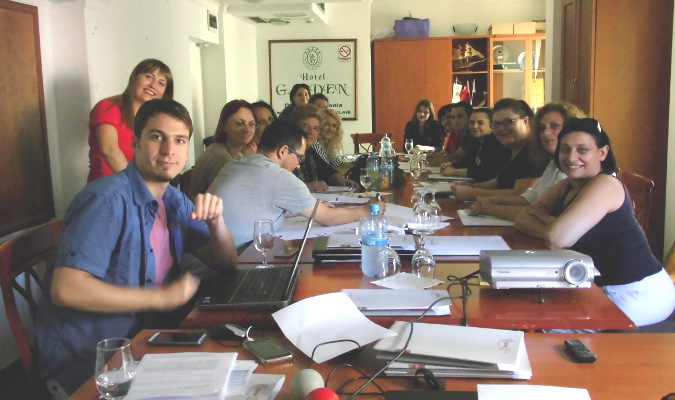Municipality brings gender perspective into its budget decisions
As one of the 10 pilot municipalities in the Former Yugoslav Republic of Macedonia to take part in the regional gender-responsive budgeting (GRB) project, Bogovinje’s decision to take up GRB has helped local female entrepreneurs and enhanced their aspiration to go into business.Date:

A multi-faceted UN Women programme in the Former Yugoslav Republic of Macedonia (fYRM) is bringing gender responsive budgeting and a commitment to boost women’s entrepreneurship to Bogovinje, a small municipality of 29,000 people.
The UN Women Office in Skopje is working closely with Bogovinje as it gears up to apply gender-responsive budgeting, strengthen capacities of municipal administration in delivering gender-related commitments, and improve its collection of gender disaggregated data.
Gender-responsive budgeting refers to gender inequalities and discrimination by analysing government budgets to ensure that national commitments to gender responsive budgeting and gender mainstreaming are adequately addressed. Bogovinje has made significant efforts to advance gender equality, and two years ago began actively supporting and promoting small scale women’s businesses. This Municipal initiative has been linked with the work they have previously done in the area of women entrepreneurship.
It became one of 10 pilot municipalities in the Former Yugoslav Republic of Macedonia to take part in the UN Women Regional Programme Promoting Gender Responsive Policies in South East Europe, supported by the Swiss Agency for Development and Cooperation and Austrian Development Agency.
Jehona Ibraimi, 24, a Masters’ student in accounting and finance, benefited from the programme by learning about grant opportunities for small businesses. Bogovinje collaborates with the Foundation for Support of Women and Youth Entrepreneurship EGALITE to provide grants from USD 3,000- 5,000. Ms. Ibraimi applied for and won a grant to establish her family business which produces natural facial creams from a recipe handed down from her grandmother more than 20 years ago.
The support enables her to promote the products and attend national and international fairs and has had a positive impact on her business. “We noticed changes just after a couple of months. Because we are now present in the market, people know that these are our creams and that we offer different types of creams. Now, we get more orders and customer calls,” says Ms. Ibraimi.
Sahide Bajrami, a gender focal point in Bogovinje who introduces and links the municipal programme to women in the community, has noticed a change: “The awareness of the women changes – now women want to have their own businesses, they want to be more independent.”
The UN Women regional programme also supports a mentorship programme in Bogovinje that assists in reviewing local policies from a gender perspective.
“We are now at a level where gender-responsive budgeting is no longer an abstract term. We have individuals within the municipal administration who are highly devoted to this idea, but the institutional level of sustainability is still to be achieved,” said Sanela Skrijelj, who mentored the Municipality of Bogovinje. “Mutual trust and respect are very important when working with local communities and women in rural communities in particular. Building strong networks will help build trust and maintain consistency.”